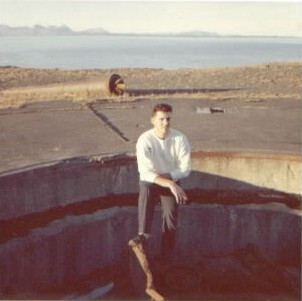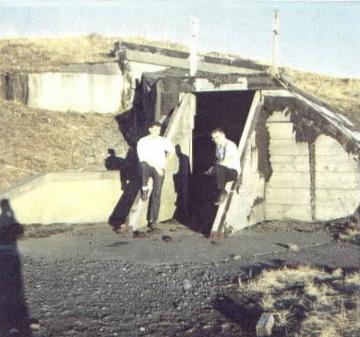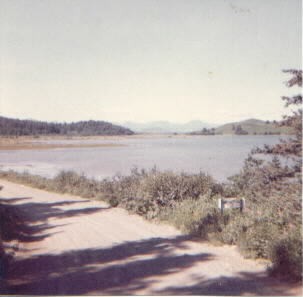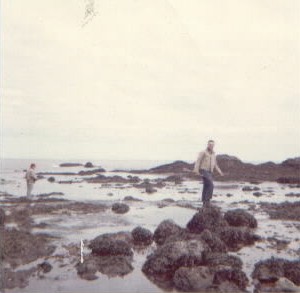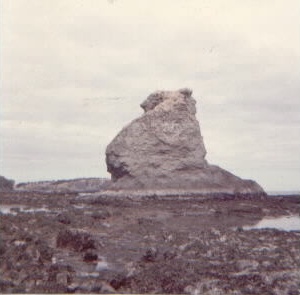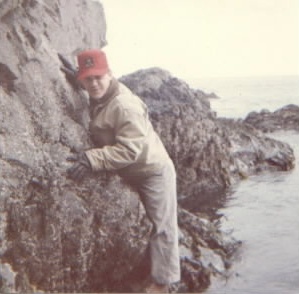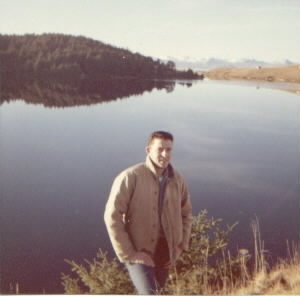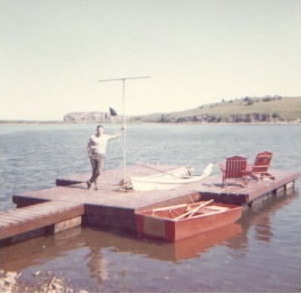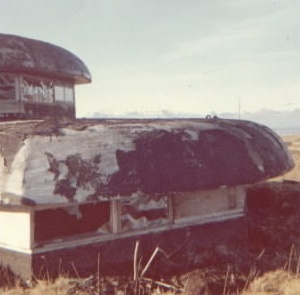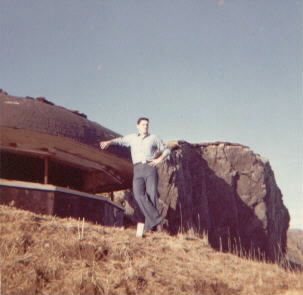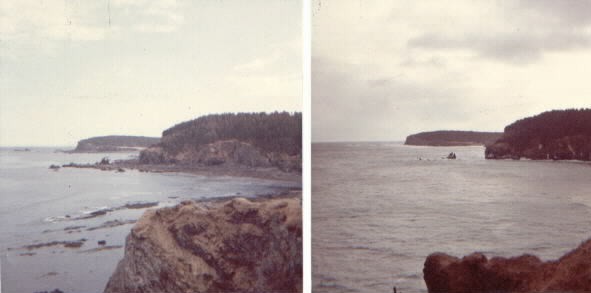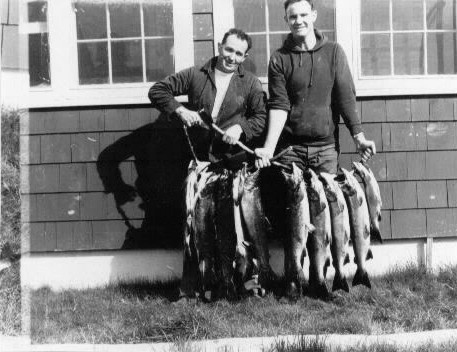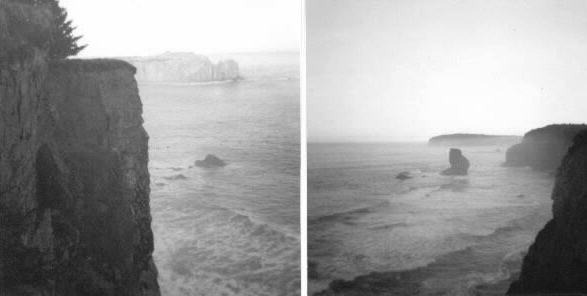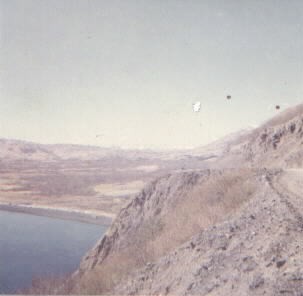
It was reportedly built by the 151st Combat Engineers Construction Battalion in
1941-42 to service part of the harbor defenses being constructed at Chiniak, known at
that time as Ft. J.H. Smith, to protect the Kodiak Naval Station which had recently
been built. The high point of the road was the infamous 'Kalsin Bay Hill'. This was a
spot where you rounded a curve, and there below, was Kalsin Bay, perhaps 300 feet
below. The road had no guard rails at that time and was probably about the same as it
was when constructed 20 years earlier. We arrived in January of '63 when there was
considerable ice and snow on the road. This made our first trip to the Cape a very
interesting one! The day before we arrived, a Navy P2V-7 plane smashed into the side of
what was known as Old Women's Mountain when the pilot aborted a landing. He
mistakenly banked to the left. The crash killed seven people and was still smoldering
when we arrived the next day from Adak. Kind of made us wonder what we were in for
and thankful that the trip from Adak had gone smoothly!
